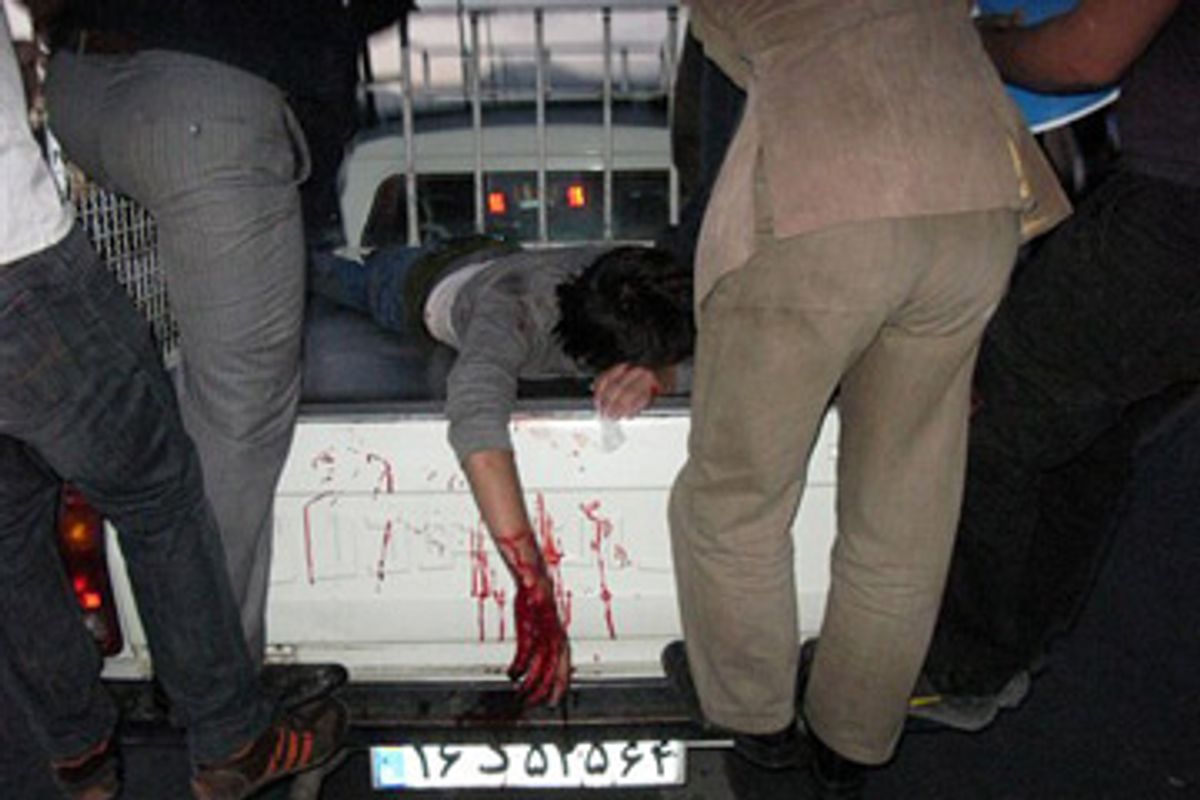At some point, President Obama had to speak, personally, about the election in Iran and the tumult in that country ever since President Ahmadinejad claimed victory in his reelection campaign. And when he did, he had a difficult task.
Obama had to be seen as encouraging democracy and change, but not too much, lest his remarks be used as propaganda to excite pro-Ahmadinejad forces or turn Iranians off from the opposition. He had to condemn the violence and support the protesters' right to assemble, but not to a degree where the U.S. could be seen as interfering with Iran's internal affairs, or threatening interference. And he surely wanted to stick to his stated policy goals regarding negotiations with Iran, but couldn't seem soft at a time of upheaval and repression.
All that made for a rather lengthy statement, which the president gave to reporters after a meeting at the White House with Italian Prime Minister Silvio Berlusconi. Obama's full remarks:
Obviously all of us have been watching the news from Iran. And I want to start off by being very clear that it is up to Iranians to make decisions about who Iran's leaders will be. We respect Iranian sovereignty and want to avoid the United States being the issue inside of Iran, which sometimes -- the United States can be a handy political football.
Having said all that, I am deeply troubled by all the violence that I've been seeing on television. I think that the democratic process, free speech, the ability of people to peacefully dissent, all these are universal values and need to be respected. And whenever I see violence perpetrated on people who are peacefully dissenting, and whenever the American people see that, I think they're rightfully troubled.
My understanding is the Iranian government says they're going to look into irregularities that have taken place. We were not on the ground, we did not have observers there, there were no international observers on hand. So I can't state definitively what happened one way or the other with respect to the election. But what I can say is that there appears to be a sense on the part of people who were so hopeful and so engaged and so committed to democracy who now feel betrayed. And I think it's important that, moving forward, whatever investigations take place are done in a way that is not resulting in bloodshed and is not resulting in people being stifled in expressing their views.
Now, with respect to the United States and our interactions with Iran. I have always believed that, as odious as I consider some of President Ahmadinejad's statements, as deep as the differences between the United States and Iran on a range of core issues, that the use of tough, hard-headed diplomacy -- diplomacy with no illusions -- about Iran and the nature of the differences between our two countries is critical when it comes to pursuing a core set of our national security interests. Specifically, making sure that we are not seeing a nuclear arms race in the Middle East triggered by Iran obtaining a nuclear weapon, making sure that Iran's not exporting terrorist activity. Those are core interests, not just to the United States but, I think, to a peaceful world in general. We will continue to pursue a tough, direct dialogue between our two countries and we'll see where it takes us. But even as we do so, I think it would be wrong for me to be silent about what we've seen on television over the past few days.
And what I would say to those people who put so much hope and energy and optimism into the political process, I would say to them that the world is watching and inspired by their participation, regardless of what the ultimate outcome of the election was. And they should know that the world is watching.
And particularly to the youth of Iran, I want them to know that we in the United States do not want to make any decisions for the for the Iranians, but we do believe that the Iranian people and their voices should be heard and respected.

Shares